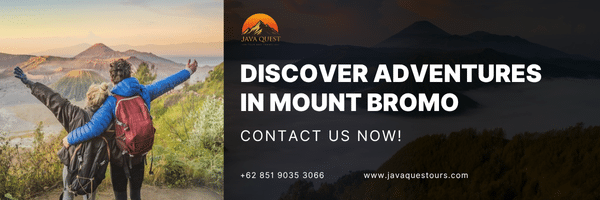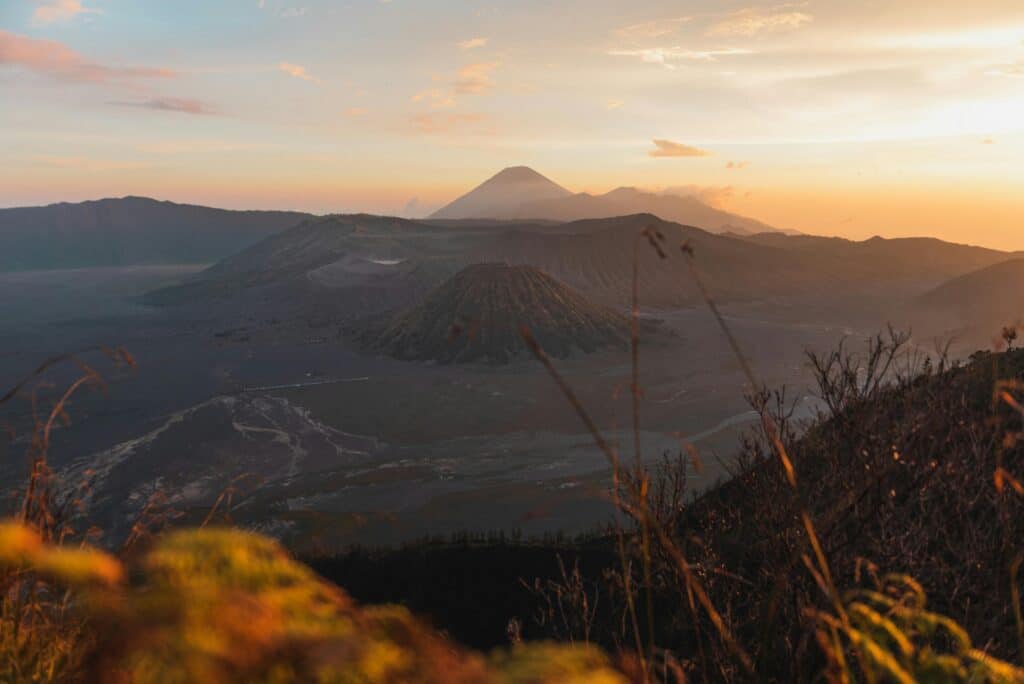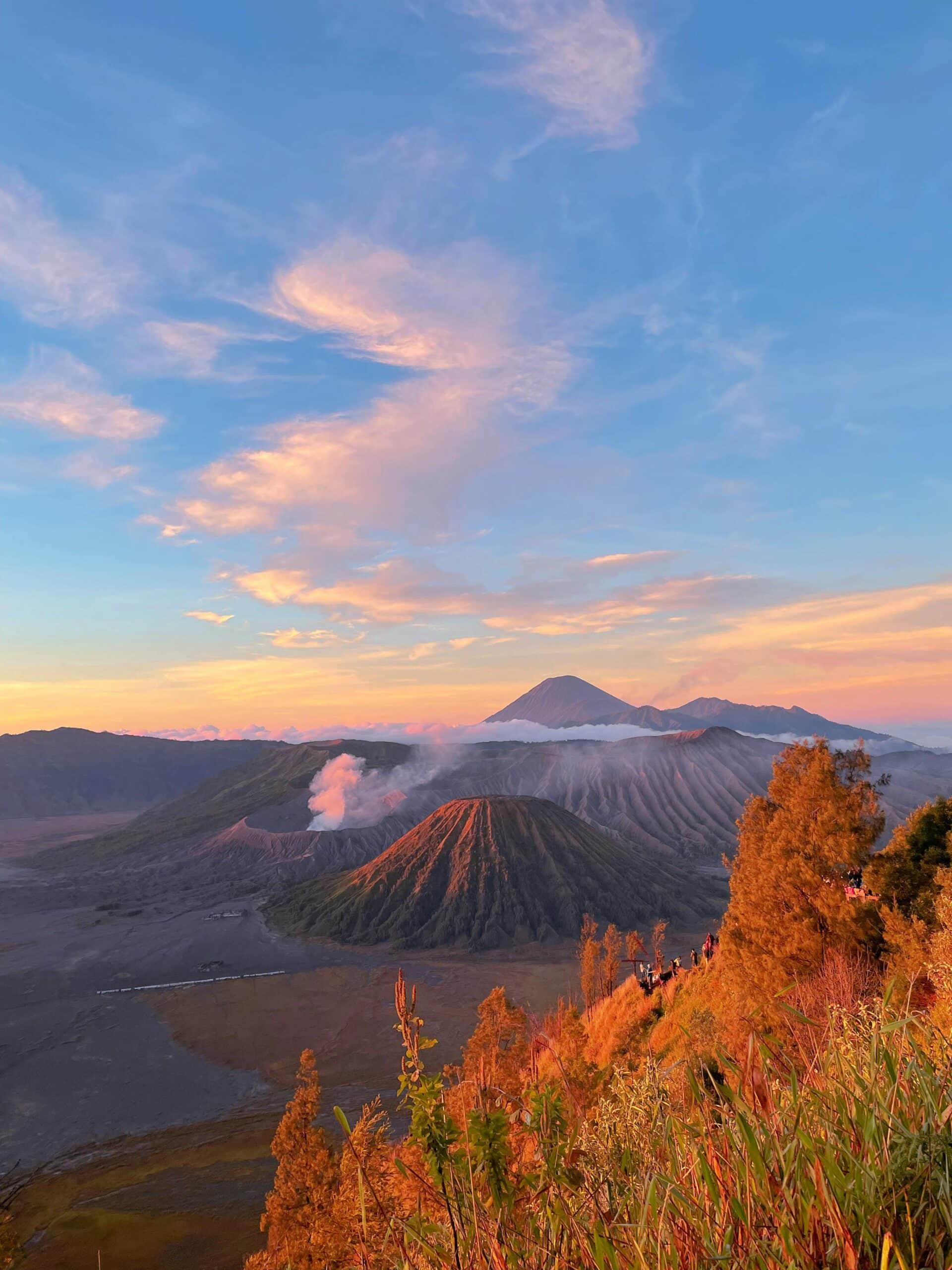July 6,2025 – Discover the best time to visit Mount Bromo with our complete guide covering weather, crowds, and insider tips for your perfect volcanic adventure.
Mount Bromo is one of Indonesia’s most amazing volcanic destinations. Every year, thousands of visitors come here for its stunning landscapes and beautiful sunrise views.
However, if you’re planning a trip to this famous East Java volcano, timing is everything. In fact, knowing the best time to visit Mount Bromo can make the difference between an amazing experience and a disappointing one.
Key Takeaways
🌟 Best Overall Time: April to October (dry season) offers the best conditions
🎯 Sweet Spot: April to June provides great weather with fewer crowds
☀️ Sunrise Views: May through August gives you the clearest skies for sunrise photos
🚶 Hiking Conditions: Trails are safest and driest from April to October
🏔️ Premium Experience: October and March offer excellent conditions with smaller crowds
❌ Avoid: November to February due to heavy rain and poor visibility
⏰ Daily Timing: Arrive by 4:30 AM for the best sunrise experience
Why Timing Matters
The best time to visit Mount Bromo depends on several factors: weather, visibility, crowds, and ease of access. Sitting at 2,329 meters above sea level, Bromo’s high-altitude climate creates distinct seasonal patterns that significantly impact your experience.
Temperatures can drop sharply, especially during sunrise hours. The region’s unique weather also affects photography conditions, trail safety, and overall comfort. Here’s what you need to know, month by month.
Dry Season: April to October (Best Time to Visit)
The dry season offers the most reliable conditions:
- Clear skies
- Little to no rain
- Excellent sunrise views and photo ops
- Safer hiking trails
April to June: The Perfect Window
For most travelers, April to June is the sweet spot. Expect:
- Crystal-clear mornings
- Comfortable temps (5–20°C / 41–68°F)
- Excellent visibility for sunrise photos
- Dry, stable hiking trails
- Moderate crowd levels
The weather is stable, the skies are open, and the experience is smooth—ideal for first-time visitors.
July to September: Peak Season
These months offer consistently great weather, but with higher foot traffic:
- Minimal rainfall (under 50mm per month)
- Bright, blue skies—perfect for photographers
- Popular with domestic and international tourists
- Increased accommodation rates
Tip: Book early if you plan to visit during this time.
October: Best Shoulder Season
October is a great time to go if you prefer fewer crowds without sacrificing weather:
- Mostly dry with occasional showers
- Fewer tourists
- Great visibility and sunrise opportunities
- Comfortable hiking temps
Wet Season: November to March (Proceed with Caution)
Visiting during the rainy season isn’t impossible, but it comes with caveats.
November to January
- Frequent rain, especially in the afternoon
- Cloudy sunrises and limited visibility
- Slippery, muddy trails
- Unpredictable weather patterns
- Potential road closures
February to March
- A transitional period with occasional sunshine
- Better than January, but still cloudy in the mornings
- Fewer tourists = more solitude
- Great for experienced, flexible travelers
Best Time by Activity
🌄 Sunrise at Penanjakan Viewpoint
May to August is the best time for clear, magical sunrises.
- Arrive by 4:30–5:30 AM to secure a good spot
- Skies are most reliable during this window
- Best for “golden hour” photos
🥾 Hiking & Crater Exploration
April to October offers:
- Dry volcanic sand paths
- Low chance of rain
- Comfortable temperatures for walking
- Better safety and footing
📸 Photography
For pro-level photos, target June to August.
- Clean skies
- Balanced lighting
- Misty valley shots at sunrise
Avoiding the Crowds
If you prefer a more peaceful experience:
- Travel in late April to early May or late September to early October
- Go on weekdays rather than weekends
- Avoid Indonesian national holidays and long weekends
What Time Should You Arrive in Bromo?
Arrive early to claim your sunrise spot at Penanjakan — the most iconic viewing area. Regardless of the month, the best time of day is always 4:30–5:30 AM.
- Dramatic golden lighting
- Cooler, more comfortable conditions
- Clearer skies before mid-morning clouds roll in
Weather & Temperature Overview in Bromo
🌡️ Temperature Ranges (Typical Day)
- Early morning: 3–8°C (37–46°F)
- Midday: 15–20°C (59–68°F)
- Evening: 8–12°C (46–54°F)
🌧️ Rainfall Patterns
- Dry season: Less than 100mm/month
- Wet season: Up to 400mm/month
- Worst months: December–February (frequent afternoon storms)
Other Considerations
🛕 Yadnya Kasada Ceremony (June–July)
The annual Yadnya Kasada ceremony — a sacred Hindu ritual by the Tengger tribe held in June or July, involves offerings being thrown into Bromo’s crater. In recent years, this ritual has sometimes led to temporary closures for tourists, so always check current access policies before planning your visit.
- A unique cultural experience
- May result in restricted access to the crater, so plan ahead
🌋 Volcanic Activity
Mount Bromo is active year-round.
- Always check volcanic alerts and official updates
- Wind may carry sulfur gases — bring a mask if you’re sensitive
Making the Final Decision
| If You Want… | Go During… |
|---|---|
| Great weather + fewer crowds | April – June |
| Best views + reliable skies | May – August |
| Fewer tourists + excellent conditions | October or March |
| Cultural experience (Yadnya Kasada) | June or July (check for closures) |
| To avoid poor visibility & rain | Avoid December – February |
Conclusion
The best time to visit Mount Bromo is clearly during the dry season, with April through October offering the most favorable conditions.
That said, Mount Bromo’s magic lies partly in its unpredictability. Even during the best months, the weather can change fast—so a little flexibility and planning will go a long way.
🌋 Want a seamless experience without the guesswork?
Explore our Private Bromo Tour for a comfortable, all-inclusive trip led by local experts.



